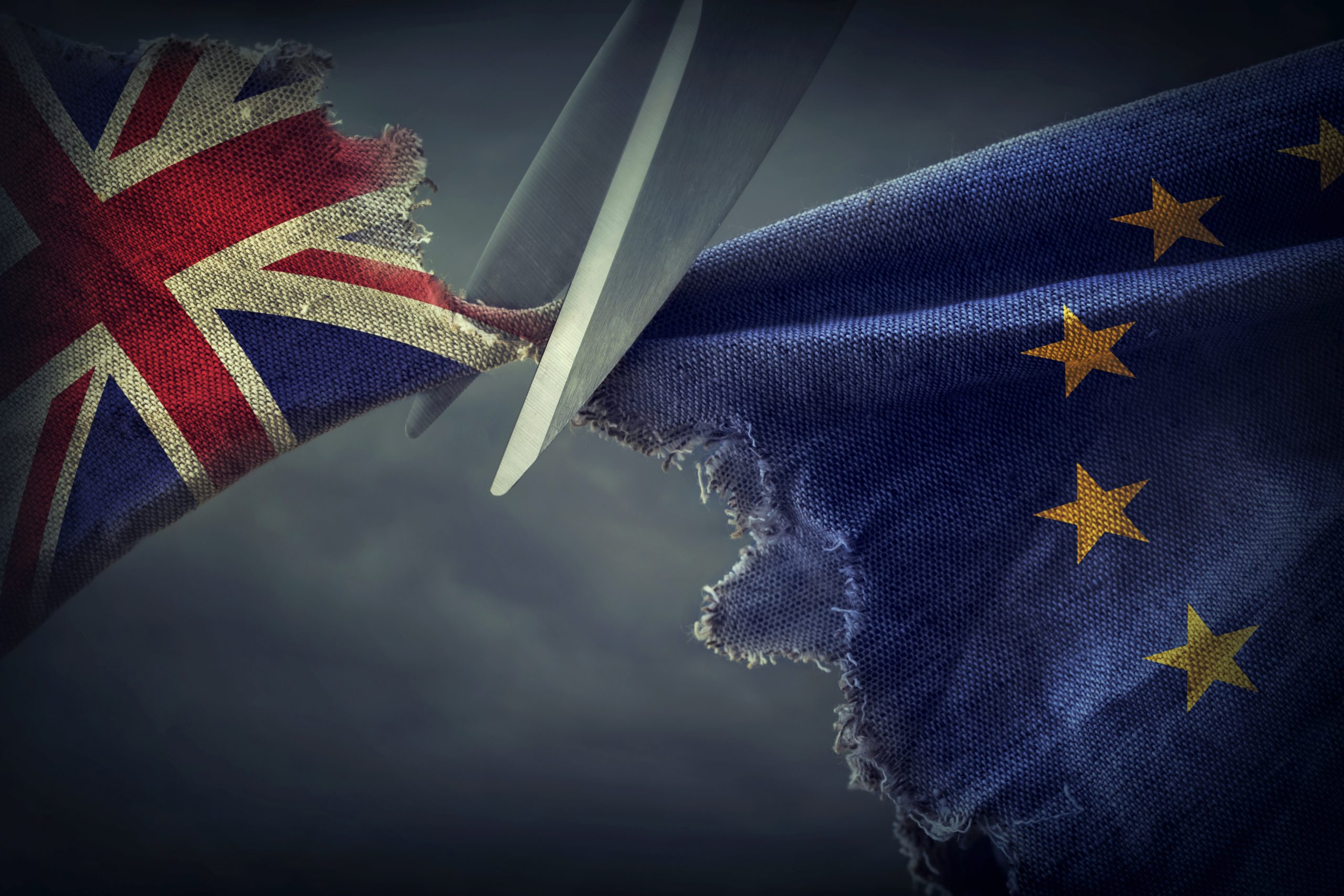“One of the more controversial aspects of the Act is a provision providing that a government minister can (with consultation) provide for certain courts and tribunals not to be bound by EU case law.”
 The Withdrawal Agreement Act 2020 received Royal Assent on January 23 and was approved by the European Parliament on January 29. That means that the UK will leave the European Union at 11:00 pm GMT on January 31, 2020 and the EU will then have 27 rather than 28 Member States.
The Withdrawal Agreement Act 2020 received Royal Assent on January 23 and was approved by the European Parliament on January 29. That means that the UK will leave the European Union at 11:00 pm GMT on January 31, 2020 and the EU will then have 27 rather than 28 Member States.
The UK’s departure from the EU will in due course have a number of implications for intellectual property, in particular registered trademarks and design rights, but none will be felt immediately. That is because the Withdrawal Agreement provides for an implementation period (also called a transition period), which will last until December 31, 2020. The Agreement provides for the possibility to extend this period, but the UK Government has said it will not do so and has legislated to that effect.
The most important point to note therefore is that in practice nothing changes. Previous articles discussing the possibility of a no-deal Brexit, without an implementation period, can now be disregarded.
What Happens on January 31?
Once it ceases to be an EU Member State, the UK will not be represented in EU bodies such as the Commission, European Parliament or EU Court of Justice. It will be able to determine its own policies in areas such as international trade and start to negotiate (but not implement) its own free trade deals. The Government has already stated that it intends to start discussing a UK-U.S. trade deal straightaway.
However, during the implementation period the UK will remain in the EU Customs Union and Single Market and will continue to be bound in general by CJEU case law.
After the implementation period, it was planned that only the UK Supreme Court could depart from retained EU case law. However, one of the more controversial aspects of the Act is a provision providing that a government minister can (with consultation) provide for certain courts and tribunals not to be bound by EU case law. Ministers have this power until the end of the implementation period. It remains to be seen how it will be used in practice.
Unitary Rights after Brexit
EU trade marks and registered Community designs will remain in force in the UK during the implementation period, after which they will be converted automatically into UK rights. EUIPO published updated information on Brexit on January 27, stating that “all proceedings before the Office that involve grounds of refusal pertaining to the territory of the UK, earlier rights originating from the UK, or parties/representatives domiciled in the UK will run as they did previously, until the end of the transition period”.
The UKIPO has also published guidance, in particular confirming that it will convert almost 1.4 million EU trade marks and 700,000 registered Community designs to comparable UK rights which will come into effect on January 1, 2021. Applicants that have applications pending at the end of the implementation period will have nine months in which to apply in the UK for the same protections.
Patents and the EPO
The European Patent Organization, which has 38 Member States, is not part of the EU. The UK has no plans to leave the EPO so European patents are unaffected by Brexit and European patent attorneys in the UK can continue to act before the European Patent Office.
However, there are some aspects of patent law that do have an EU dimension. One of these is the grant of Supplementary Protection Certificates for pharmaceutical and plant protection products. SPCs are granted as national rights and will continue to be examined under the current framework in the UK, though in time the law might diverge. The EU Biotech Directive also has an impact on patents, as do certain provisions of EU competition law, for example in FRAND cases. The proposed Unitary Patent and Unified Patent Court are not yet in effect as a challenge before the German Constitutional Court is still pending.
Up for Discussion
What happens from January 1, 2021, and how far the UK will diverge from EU norms, will be decided during trade talks, which will take place during the next 11 months. Both the UK and EU aim to agree a comprehensive deal covering everything from fishing to financial services. These discussions may include IP-related topics such as: representation rights for UK barristers, solicitors and trademark attorneys; reciprocal recognition of geographical indications; cross-border copyright arrangements; and exhaustion of rights.
There is considerable debate about whether the UK will seek a close relationship with the EU, which will mean greater continuity, or a looser relationship which will result in regulatory divergence. A looser relationship would be more disruptive but might make it easier for the UK to negotiate free trade deals with other parties, including the U.S.
In what may be a sign of things to come, the IP Minister Chris Skidmore revealed in a written answer to a Parliamentary question that the UK has no plans to implement the recently agreed DSM Copyright Directive. (See “The Top Five European IP Developments of 2019,” IPWatchdog, December 30 2019.) The deadline for implementing the Directive falls after the implementation period.
Among other things, the Directive addresses the liability of online content-sharing websites. Skidmore’s decision was therefore good news for tech companies and activists but disappointing for rights owners. However, he did not rule out the UK enacting something similar in the future, saying: “Any future changes to the UK copyright framework will be considered as part of the usual domestic policy process.”

![[IPWatchdog Logo]](https://ipwatchdog.com/wp-content/themes/IPWatchdog%20-%202023/assets/images/temp/logo-small@2x.png)

![[Advertisement]](https://ipwatchdog.com/wp-content/uploads/2024/04/Artificial-Intelligence-2024-REPLAY-sidebar-700x500-corrected.jpg)
![[Advertisement]](https://ipwatchdog.com/wp-content/uploads/2024/04/UnitedLex-May-2-2024-sidebar-700x500-1.jpg)
![[Advertisement]](https://ipwatchdog.com/wp-content/uploads/2024/04/Patent-Litigation-Masters-2024-sidebar-700x500-1.jpg)

![[Advertisement]](https://ipwatchdog.com/wp-content/uploads/2021/12/WEBINAR-336-x-280-px.png)
![[Advertisement]](https://ipwatchdog.com/wp-content/uploads/2021/12/2021-Patent-Practice-on-Demand-recorded-Feb-2021-336-x-280.jpg)
![[Advertisement]](https://ipwatchdog.com/wp-content/uploads/2021/12/Ad-4-The-Invent-Patent-System™.png)






Join the Discussion
2 comments so far.
angry dude
January 31, 2020 02:16 pmCalexit, anyone ?
Let’s call it SVexit not to insult the rest of folks there who don’t even know what patents are…
And treat them as hostile foreign corporations which they are btw
Pro Say
January 31, 2020 10:38 amAlicexit, anyone?